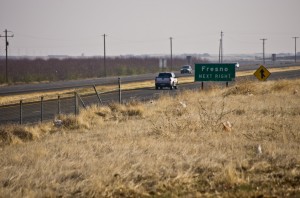"We need to recruit in the triple digits," said Stacy Vaillancourt, with St. Agnes Medical Center. "People turn to the ER. They don't have primary care. There is a huge access problem."
To get to triple-digit recruiting, you need to start somewhere. One emphasis is recruiting graduating medical students for residency training in Fresno, because physicians often stay in the communities where they complete their residencies. The Fresno Health Community Access Partners (FHCAP) has received federal approval to start a program to train family practice residents.
The group is approved to recruit four doctors for each of the next three years. That sounds like a start -- 12 doctors coming to Fresno in the near future. Yet the program is only funded for three years while a medical residency typically runs three or four years.
"We can tell these kids today that they'll get their full three years," said Stephen Schilling, CEO of Clinica Sierra Vista. "I don't know what we'll them them next year."
Then in a line that got a laugh from the audience, Schilling added, "We'll be coming after you -- all you hospitals, all you practices, we'll be coming to you to help pony up for to help fund this for the long haul."
But once the physician supply discussion was dispensed with, tension started to build. Fresno is one of just three counties in California to decline to set up a Low Income Health Program. The LIHP program gives counties access to federal funds ahead of the Medicaid expansion coming with the Affordable Care Act next January 1.
But even with the federal funds, money is needed at the county level. Dr. Edward Moreno, director of the Fresno County Department of Public Health, said that the county passed on the LIHP because it could allocate $20 million, and it "wasn't enough to cover costs."
On this point, Norma Forbes of Fresno Health Community Access Partners promptly disagreed with Moreno. "There is no health care policy in Fresno County," Forbes pointedly said. "We're in a position of haphazardly approaching this. It's not an organized, not a collaborative approach."
One of the most obvious places where collaboration has been a challenge is the 30-year contract between Community Medical Centers (CMC) and Fresno County to provide indigent care. That contract still has more than a decade remaining on it. Cunningham's report identified a "stalemate" between CMC and Fresno County over modifying the contract which "stymied" LIHP development.
"Each side has a position on the 30-year contract," Schilling said. "It's just unfortunate that the parties that needed to ... couldn't come up with an agreement."
And that lack of collaboration is hampering overall efforts to plan for reform, as noted in Cunningham's report, which was prepared for the California HealthCare Foundation, one of the sponsors of the Fresno event:
County governments and providers were doing little coordinated community-wide planning for health reform despite the importance of coverage expansions for this region and the large number of undocumented immigrants who will be ineligible to transition into Medi-Cal in 2014.
As the discussion wrapped up, Cunningham pointed out that even with the expansion of Medi-Cal, California's version of Medicaid, the Fresno area will still have a lot of uninsured, and he estimates one-third to one-half of those uninsured will be undocumented immigrants.
"The county is still going to have that responsibility of caring for the indigent who do not qualify for the ACA expansions," Cunningham said. "The challenge will be trying to fold them in within the changes that are happening in the Medi-Cal expansion."
Schilling, who is from Kern County, encouraged Fresno to "get moving down the highway, so you're not left behind the 8-ball come next year."
